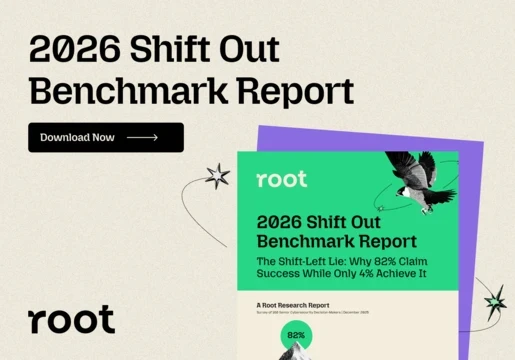
As the EU AI Act comes into force on 1 August 2024, UK businesses that operate within the EU or provide AI services to the EU market must adapt to a new AI regulatory framework. This artificial intelligence legislation represents a significant shift in how AI technologies are managed and governed across industries, from healthcare and finance to manufacturing and retail.
For UK companies, compliance with the EU AI Act is not optional. Remaining competitive in the European market requires urgent action to ensure AI systems meet the stringent requirements of this new law. Failure to comply could result in penalties and restricted access to the EU market. Additionally, as the UK considers introducing its own AI regulations, it's essential for businesses to stay ahead of these developments and align their operations with both UK and EU AI compliance standards.

Why Understanding the EU AI Act Matters for UK Businesses
The EU AI Act is a pivotal regulation designed to govern the development and application of AI systems, particularly in high-risk sectors. For UK businesses, it is crucial to understand this regulation as non-compliance can lead to severe consequences, including significant penalties, damage to reputation, and a potential loss of access to the lucrative EU market.
The Act classifies AI systems based on their risk levels, ranging from minimal and limited to high and unacceptable risks. Systems deemed high-risk, such as those used in critical sectors like healthcare, finance, and transportation, will face the most stringent regulations. Businesses operating in these areas must ensure their AI systems meet the transparency, safety, and ethical standards set forth by the EU AI Act.
For UK companies, understanding how their AI systems are classified under the Act is the first step toward compliance. For example, a financial services company using AI for loan approval processes must ensure their technology adheres to the strict guidelines for high-risk AI systems. This includes conducting thorough assessments of the AI’s impact, ensuring transparency in decision-making, and implementing robust safety measures.

UK businesses that wish to maintain their competitive edge in the EU market must adapt quickly. Updating compliance programmes, refining internal processes for data collection, monitoring, and auditing, and ensuring alignment with the Act's requirements are essential. Ignoring these regulations could result in being outpaced by European competitors already adapting to the new landscape. Acting now to comply with the EU AI Act will ensure businesses avoid disruptions and continue thriving in the EU's AI-powered economy.
Preparing for Future Regulations: The UK’s Next Steps
The UK government has announced plans to introduce AI regulations to address growing concerns around ethical AI and data protection. While the specifics of the UK AI regulatory framework are still being developed, the recent King's Speech emphasised the need for strong AI governance. This indicates that AI regulation in the UK is imminent. Businesses should act now to ensure they comply with future AI laws and avoid disruptions.
With AI regulations evolving globally, especially across multiple jurisdictions, businesses that operate internationally must future-proof their AI compliance strategies. Preparing for upcoming AI legislation will help ensure smooth operations in global markets while staying ahead of potential regulatory changes.
ISO 42001: A critical Tool for Compliance and Growth
In the wake of the EU AI Act, which introduces strict regulations for artificial intelligence, over 100 leading companies, including Amazon, Google, Microsoft, and OpenAI, have signed the EU’s AI Pact, committing to the responsible use of AI. However, the refusal of major players like Apple and Meta to join has raised concerns about resistance to the EU's AI regulatory framework.
Despite these hesitations, the EU AI Act represents a major opportunity for businesses to leverage AI responsibly and drive innovation. Central to this effort is ISO 42001, the international standard for AI management systems, which provides businesses with a clear roadmap for managing AI responsibly. By adhering to ISO 42001 standards, companies not only ensure regulatory compliance but also foster AI transparency, ethical practices, and sustainable growth.
Implementing ISO 42001 AI management systems allows companies to align their AI strategies with global best practices. This alignment helps build trust with regulators and customers, demonstrating that AI technologies are safe, transparent, and ethical. With the rise of AI regulations in the EU and globally, ISO 42001 compliance positions businesses as leaders in AI governance.
Continuous Improvement with ISO 42001
One of the standout benefits of ISO 42001 is its emphasis on continuous improvement. As AI technology evolves, new risks emerge, making it critical for companies to adapt. ISO 42001 offers a flexible framework that helps businesses stay ahead of future regulations—whether from the EU AI Act, the UK, or other global markets. This proactive approach ensures businesses remain compliant while fostering innovation in AI.
Moreover, ISO 42001 helps companies maximize the potential of AI by embedding ethical AI practices into their development and deployment processes. For instance, healthcare organizations can ensure that AI tools used in diagnostics comply with safety and privacy standards, while financial institutions can manage risks tied to AI-driven decision-making, promoting transparency and fairness.
Aligning with ISO 42001 ensures compliance with the EU AI Act and other future regulations and drives business growth and innovation through responsible AI use. By implementing ISO 42001 standards, businesses can unlock AI’s full potential, ensuring ethical, safe, and innovative AI systems that align with the evolving regulatory landscape.
The risks of Non-Compliance and AI Misuse
Recent news stories highlight the risks of AI misuse and non-compliance. For example, reports of AI-driven fraud and algorithmic bias have raised concerns about the ethical implications of AI technology. The EU AI Act directly addresses these concerns by enforcing strict regulations on how AI is developed and applied.
For businesses, failing to comply with these regulations could lead to significant financial penalties, as well as damage to their reputation. In addition, AI-related incidents, such as data breaches or misuse of personal information, could have long-lasting legal and operational consequences.
For businesses that are slow to act, the consequences of non-compliance with AI regulations could be severe. UK businesses must take proactive steps to safeguard their AI systems, using compliance frameworks like ISO 42001 and robust cybersecurity measures to prevent breaches and maintain stakeholder trust.
The EU AI Act represents a significant regulatory shift, and UK businesses must act swiftly to ensure compliance and maintain their competitiveness in the European market.
By understanding how the Act applies to their industry and leveraging tools like ISO 42001, businesses can not only meet regulatory requirements but also use AI as a catalyst for innovation and growth. As the global regulatory landscape for AI continues to evolve, preparing now will ensure businesses are well-positioned to navigate future challenges while embracing the full potential of AI technology.







Comments ( 0 )